But first, don season:
PS: celebrate Shambhala Day/Losar/the Eastern New Year at your local Shambhala Center. Here’s what it’s like at the Boulder Shambhala Center.
This Tibetan New Year, it’s the year of the Pig. That’s a good thing!
Shambhala Day marks the beginning of the Tibetan New Year which is one of the most important celebrations of Shambhala Buddhism. The date of the Tibetan New Year, also known as Losar, changes each year as directed by the annual lunar cycles. It is a time for us to enjoy and express the wealth and richness of our spiritual and cultural heritage through feasting, conviviality, elegance and pomp.
Please check out this article on a full explanation of Shambhala Day.
It’s the Eastern New Year…time to Lhasang (purify) your home & favorite objects.
Bonus:
Cheerful Shambhala Day! Here’s what the New Year means for us.
Find a Shambhala Center near you: all are welcome, you don’t have to be Buddhist to celebrate this day.
Come one, come all, dress to the nines—celebrate the dawn of a bright, young, strong and cheerful New Year.
Above: some of the many things you can expect to see and hear and enjoy at Shambhala Day. This video from NYC, from last year, the year of the Rabbit.
Shambhala Day, more commonly known as Losar or the Tibetan New Year, is a day so sweet by any other name: thousands of American Buddhists gather, meditate, chant in the New Year, celebrate, dance…the usual for any New Year, really.
To grock the deeper meaning behind the year, check out our this talk.
Above: It’s one of the most accessible books on meditation, from a non-religious point of view.
Every year since I was a child, New Year’s Eve was special, but little more than a lead up to Shambhala Day, when my American Buddhist community gathered, pulled our “Sunday best” out of storage, meditated, chanted, burned damp juniper in a sort of purification blessing and drala-magnetizing ritual, danced in a full-on fancy British-style Ball, listened to an international Dharma address by our guru (with funny commentary preceding by our own resident comedian, Marty Janowitz), attended brunches at households all over whatever town I happened to live in…it was a full, special, helpful week of celebrations.
But the 10 or so days preceding, we’d do very little. Stick close to home. Practice meditation, chant sacred reminders about wakefulness. We’d avoid travel, big decisions, business moves—the week or so directly before the Eastern New Year is considered a time for contemplation and cleaning up the accumulated karmic dust bunnies from the year before.
It’s called Dön Season. And it’s over, as of today.
Now, it’s a new year. Here’s info about what all that means for you.
> First of all, lhasang (purify) your house. Open your cupboards. Chant. Hit every room, including closets, the basement, the attic. Good bye, bad old vibes. PS: it sounds superstitious, and I hate superstition…but it’s…real/magical…whatever…it works. Science will prive this shiite for reals in 1,000 years, but why wait?
~
Click here for an address by Chogyam Trungpa from 1982, courtesy Chronicle Project. For 1984, click here. Click here for a Unborn, Unborn, a song I grew up singing as a Shambhala child.
Here’s some general info about how to approach the next 12 months.
Shambhala Day marks the beginning of the New Year, and is the most important holiday of the Shambhala Mandala. Based on the traditional Tibetan new year’s celebration of Losar, the day is calculated astrologically according to the Tibetan lunar calendar, and changes every year to coincide with the annual lunar cycles.
Shambhala Day is a time for us to express the wealth and richness of our spiritual and cultural heritage through feasting, conviviality, and elegance. Many local Shambhala Centers plan activities throughout the week following the New Year’s Day. Each year, we enjoy an address with the worldwide Shambhala Community through a phone hook-up with centres and groups in more than 25 countries around the world. Visit the Shambhala Day page for more information.
Shambhala Day is a time for us to express the wealth and richness of our spiritual and cultural heritage through feasting, conviviality, elegance and pomp. Accordingly, Centers are encouraged to plan activities throughout the week following the New Year’s Day. As is customary, the worldwide Shambhala community connects on Shambhala Day through a phone hook-up, which includes centers and groups from 5 continents and over 25 countries around the world.
This is also the time when members of the Shambhala community are encouraged to make a financial donation to Shambhala in order to help support the activities of our worldwide mandala. We ask that fundraising for Shambhala be given a spotlight at all centers and groups.
For old times’ sake, here’s Trungpa Rinpoche’s 1984 talk. Remember specifics about the year may not apply, but the general spirit was so touching I had to put this in. Again, courtesy the Chronicle Project, a site worth supporting (it’s working to preserve history and teachings of Trungpa Rinpoche in the West:
Chogyam Trungpa Rinpoche: Cheerful Shambhala Day.
Students: Cheerful Shambhala Day, Sir.
CTR: It is a great pleasure for me to talk to you all. Not only in this room alone, but overseas and students of Vajradhatu. I hope that we all will have good time and good year, particularly good practice. We had a very positive year, and no doubt we will have also positive year in this year.
It is particularly year for us to develop sense of humor. Particularly it is year for [us to] express non-theism, and no doubt that it is year for further cheering up. It is year of experiencing interesting gap in our lives. Some people might feel that there is a sense of loss, confusion, and some people might experience year of making decisions of our lives. But we shouldn’t be afraid of those problems.
The reality, strangely enough, has four legs and it’s hairy [laughter]. Occasionally it has two wings. Sometimes it is ornamented with two horns. Life is not all that bad. It has enormous cheerful possibilities. Wherever you are, you will find great smile. One never knows who is smiling, or for that matter, what we are smiling for. In short, please make sure that there is no frivolity, and make your decisions [in] accordance with the practice of meditation, and with sense of humor. This is year of making decisions: economic, social, education, and so forth.
As far as the Vajradhatu is concerned, we are grown up, growing further. We are learning more. We have learned from both mistakes and wisdom. It is year for us to not panic, and develop sense of humor.
I am very pleased with all the students — how much exertion they put in their practice, and effort. It will cause longevity for me, and therefore I would like to thank all of you. But let us continue, let us go on. Let us expand. Cheerful Shambhala Day to all of you with lots of love. Let us play together.
Thank all of you. Please enjoy today, and rest of the year. Don’t give up. Continue. Thank you.
© 2008 Diana J. Mukpo
Two years ago, I invited Congressman Polis. That was a fun honor [more photos here]
~
Dedication of any Good Merit we help to create to others:
By this merit
May all attain peace
May it defeat the enemy, mistaken thinking and harmful actions
From the stormy waves of being born, aging and dying
From the ocean of suffering and confusion may it be of benefit!




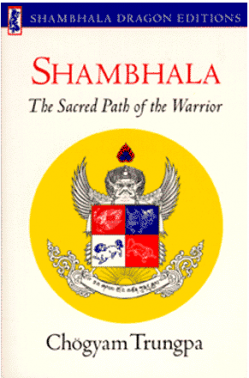

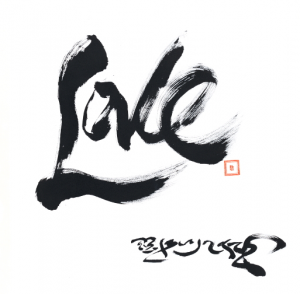
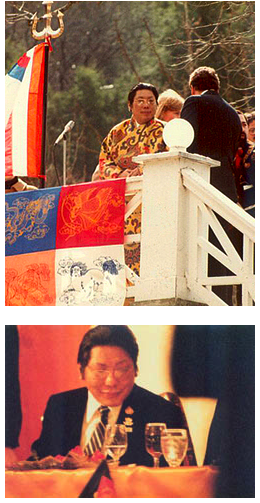
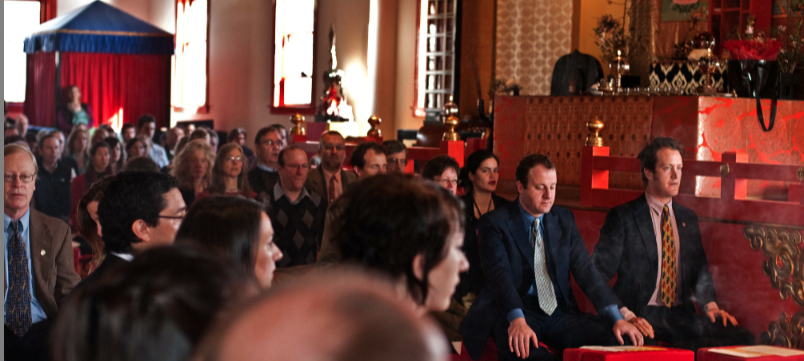
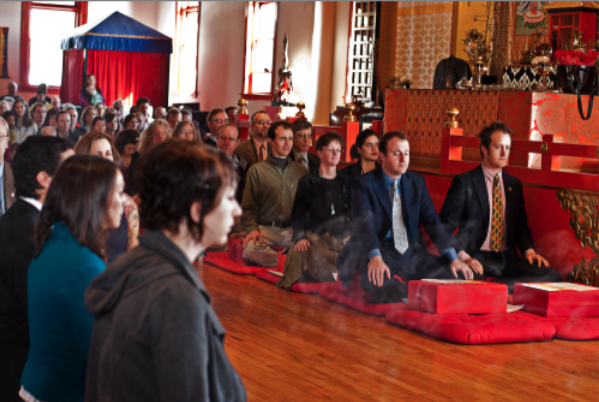

Read 7 comments and reply